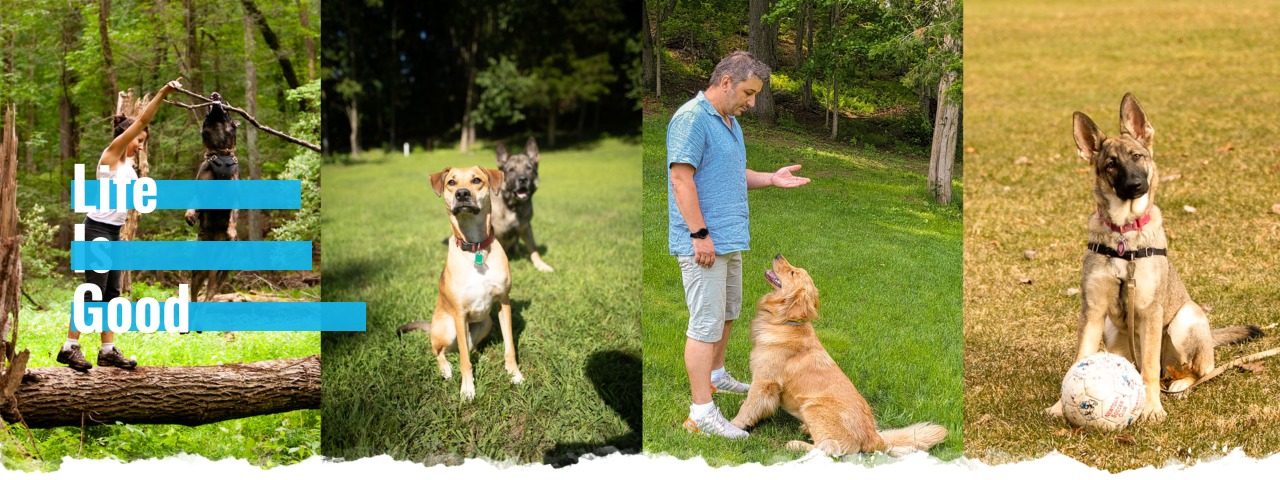Budget-friendly and Professional Dog Training For Dogs Near You
Budget-friendly and Professional Dog Training For Dogs Near You
Blog Article
Essential Canine Educating Tips for Raising a Well-Behaved Companion
Efficient pet dog training is fundamental to creating a well-behaved and harmonious companion. Necessary strategies such as very early socialization, the establishment of consistent commands, and the implementation of positive reinforcement can substantially influence a pet dog's habits and general personality. In addition, understanding canine behavior is essential for tailoring training methods that resonate with individual canines. By cultivating a cooperative environment among family participants and sticking to an organized routine, owners can enhance their training initiatives. The ins and outs of these techniques benefit further expedition to completely appreciate their impact on cultivating a well-adjusted canine companion.
Comprehending Canine Actions

Additionally, socializing plays a crucial function in shaping a pet's habits. Exposure to numerous atmospheres, individuals, and other animals aids canines develop self-confidence and decreases the likelihood of fear-based responses. Early socialization is specifically important, as experiences throughout the important development duration considerably affect a pet dog's long-term habits.
Additionally, understanding the principles of finding out theory-- such as favorable reinforcement, unfavorable support, and penalty-- can boost training performance. Canines are more probable to repeat habits that yield positive end results. Employing constant, reward-based training methods fosters a trusting connection between the canine and its instructor.

Basic Commands to Teach
Educating fundamental commands is an important foundation for reliable pet dog training and communication. Dog Training For Dogs. These commands not just help develop a clear line of communication in between you and your canine, but they likewise promote safety and security and etiquette in different scenarios
Begin with basic commands such as "Sit," "Remain," "Come," "Down," and "Heel." Each command offers a certain purpose; for instance, "Sit" can help soothe an excited canine, while "Come" is essential for ensuring your pet returns to you when called.
When presenting a brand-new command, utilize a consistent and clear tone. Constantly couple the verbal command with a hand signal to enhance understanding. Technique in a quiet atmosphere prior to gradually presenting distractions. Slowly raise the duration and distance as your pet dog comes to be much more efficient.
Consistency is crucial; technique regulates day-to-day to reinforce knowing, and make sure all relative use the same commands to prevent complication. Keep in mind that persistence is essential throughout this procedure, as various dogs may learn at different paces. Establishing these basic commands promotes an unified partnership and sets the phase for more advanced training in the future.
Positive Support Techniques
Favorable support strategies are very reliable approaches for encouraging desired behaviors in dogs. This training approach entails fulfilling your pet for showing actions you want to strengthen, thus boosting the likelihood of those actions being duplicated. Benefits can take different forms, consisting of like it deals with, praise, or playtime, and should be customized to what inspires your canine most.
Timing is critical in favorable support. Rewards should be offered promptly after the preferred behavior strikes produce a clear association. For instance, if you desire your pet to rest on command, award them as quickly as they rest, ensuring they understand what activity is being strengthened.
Consistency is another crucial component. Dog Training For Dogs. Make use of the exact same commands and incentives each time to prevent confusion. Slowly, you can terminate treats for more intermittent incentives, such as verbal appreciation, to maintain the actions without relying upon consistent external why not try these out support
Furthermore, it is essential to stay person and prevent penalty, as negative support can lead to fear and anxiousness, ultimately preventing training efforts. By implementing favorable reinforcement techniques, you will cultivate a relying on connection with your pet dog, resulting in a well-behaved buddy.
Socialization and Interaction
Socialization and communication are basic facets of a pet's advancement that complement positive reinforcement methods. Very early direct exposure to diverse atmospheres, individuals, and various other pets is essential for promoting a well-adjusted pet. This process assists pet dogs create confidence and adaptability, minimizing the chance of behavior issues such as worry or hostility.
Begin socialization during the vital developing home window, commonly between three and fourteen weeks of age. Introduce your puppy to various stimuli, including different sounds, views, and appearances. Sign up in pup courses or arrange monitored playdates with various other pets to urge favorable communications.
As pets expand, proceed to expose them to different experiences. Activities such as check outs to parks, pet-friendly stores, or community occasions can boost their social abilities and convenience levels in unfamiliar settings.
Constantly check interactions to ensure they are stress-free and favorable. Calmly reroute them and permit for progressive exposure at a comfy speed if your canine exhibits indicators of stress and anxiety or aggression. With consistent socializing and communication, you lay the groundwork for a well balanced, mannerly companion efficient in prospering in diverse social scenarios.
Consistency in Training
Establishing consistency in training is crucial for efficient interaction between a canine and its proprietor. Dogs prosper on clear and routine assumptions, which aids them understand what behavior is wanted.
Uniformity likewise expands beyond commands; it includes the policies developed within the home. As an example, if a pet is not permitted on the furniture, this regulation should be implemented in all times. Blended signals can bring about behavior issues, as the canine may end up being unpredictable about what serves.
Moreover, all household participants need to get on the same page pertaining to training techniques and commands. The pet might end up being nervous and disoriented. if one person rewards a behavior while another scoldings it.
Conclusion
Finally, implementing important dog training ideas promotes a well-behaved buddy. Early socialization, consistent commands, and favorable support are vital elements that add to effective training. Developing clear interaction and preserving a routine improves the canine's understanding of expectations, while perseverance makes sure long-lasting success. Ultimately, these techniques grow a trusting relationship in between the canine and its family, advertising a harmonious living setting and a well-adjusted canine buddy (Dog Training For Dogs).
Essential techniques such as very early socialization, the establishment of constant commands, and the execution of useful reference favorable reinforcement can significantly affect a pet's actions and overall personality. Understanding canine actions is important for customizing training techniques that resonate with private dogs.Comprehending canine behavior is necessary for effective pet dog training. Dogs are a lot more most likely to repeat habits that generate positive results.Favorable reinforcement methods are very effective techniques for motivating wanted behaviors in pet dogs.
Report this page